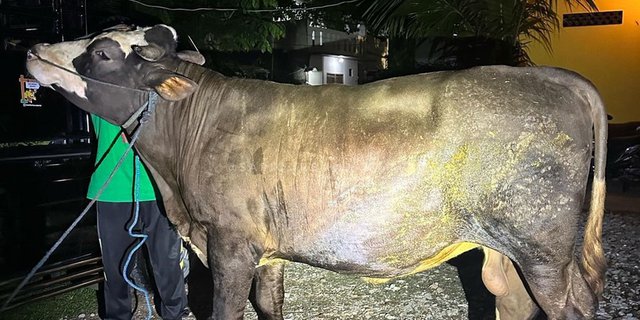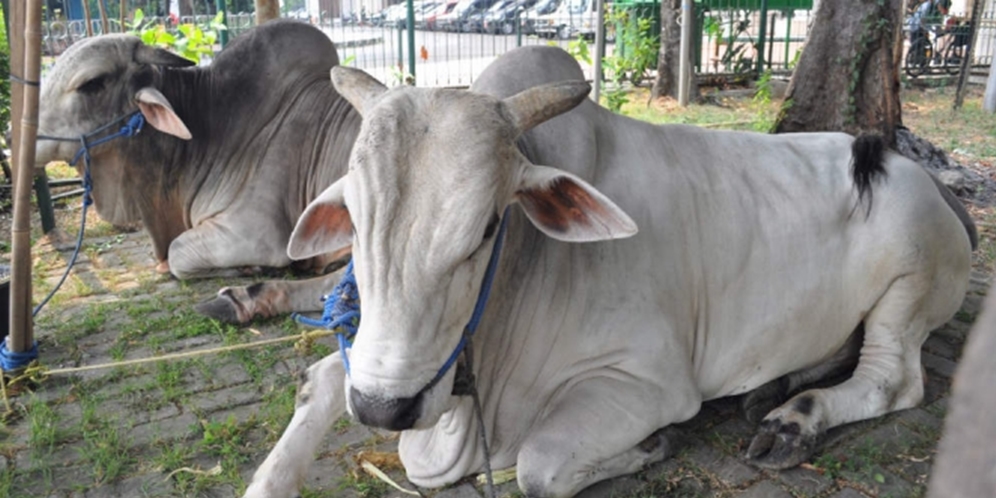Viral Moment Mario Dandy Suspected Laughing When He Found Out David Ozora Still Can't Wear Pants
Jonathan Latumahina explains the condition of David Ozora who is experiencing amnesia and still cannot be independent.

Dream – Understanding Sacrifice is an explanation of everything related to the act of sacrifice. The act of sacrifice itself is performed every Eid al-Adha and the days of Tashriq. The act of sacrifice is also known as an act performed to commemorate the story and teachings of Prophet Ibrahim.
In the context of Islam, the act of sacrifice is the act of slaughtering a specific animal as an act of worship to Allah SWT. Sacrifice is one of the important pillars of Islam, especially during Eid al-Adha or the Feast of Sacrifice.
The command to sacrifice certainly has important meanings and messages. In essence, Islamic law always holds meanings and reasons behind the command. So it is important to understand the meaning behind the Islamic law of sacrificing animals. To find out, let's take a look at the full review below!
Etymologically, the word 'sacrifice' comes from the Arabic word 'qurban' which means to draw closer or to sacrifice something to gain the pleasure of Allah SWT. Specifically, the sacrifice referred to in Islamic teachings is the act of slaughtering an animal as a form of honor and obedience to Allah.
In Islam, sacrifice refers to the story of Prophet Ibrahim who was willing to sacrifice his son, Prophet Ismail, at the command of Allah SWT. At the moment of sacrifice, Allah replaced Ismail with a sheep that was sacrificed as a substitute. This story shows the loyalty, obedience, and devotion of Prophet Ibrahim to Allah SWT.
Through the act of sacrifice, Muslims are reminded of values such as obedience to Allah, self-sacrifice, sincerity of heart, sharing with others, and respecting life. Sacrifice is also a form of worship that reflects gratitude and reminds humans of the greater values of life beyond themselves.
In addition to its religious aspect, sacrifice also has a strong social and humanitarian dimension. The meat of the sacrificial animal is distributed to the poor, those in need, neighbors, and less fortunate families. This embodies social solidarity, generosity, and sharing blessings with others.
In conclusion, sacrifice is an act of worship in Islam that involves the slaughter of animals as a form of obedience to Allah, self-sacrifice, and sharing with others. It has strong spiritual, social, and humanitarian meanings in strengthening the relationship with Allah and fellow human beings.

The slaughter of the sacrificial animal during Eid al-Adha has deep meaning in Islam. Here are some important meanings of the slaughter of the sacrificial animal on Eid al-Adha:
The slaughter of the sacrificial animal is a form of obedience and respect for the command of Allah SWT. Like in the story of Prophet Ibrahim, who was willing to sacrifice his son at the command of Allah, the slaughter of the sacrificial animal is an act that shows our willingness to obey Allah and fulfill His command.
The slaughter of the sacrificial animal teaches the value of sacrifice and sincerity of heart. When someone slaughters a sacrificial animal, they sacrifice something valuable to them in order to seek the pleasure of Allah SWT. This is a manifestation of our willingness to let go of what we love for a greater purpose.
The meat of the sacrificial animal is distributed to those in need, including the poor, widows, and orphans. This is a form of care and sharing with others. The sacrifice of the sacrificial animal teaches the importance of sharing blessings and sustenance with those in need.
The sacrifice of the sacrificial animal on Eid al-Adha reminds us of the story of Prophet Ibrahim and his son, Prophet Ismail. This story shows their loyalty, faith, and obedience to Allah. Through the sacrifice of the sacrificial animal, we revive the values taught by this story.
According to Islamic teachings, the sacrifice of the sacrificial animal on Eid al-Adha can serve as a means of forgiveness of sins and obtaining great rewards. With sincere intentions and within the framework of proper worship, Allah SWT will forgive our sins and reward us.
The sacrifice of the sacrificial animal on Eid al-Adha is not just a physical act, but also has spiritual meaning and deep values. Through the sacrifice of the sacrificial animal, Muslims are reminded to increase righteousness, obedience, sacrifice, and concern for others in order to strengthen their bond with Allah SWT and fellow human beings.
Cobain For You Page (FYP) Yang kamu suka ada di sini,
lihat isinya
Jonathan Latumahina explains the condition of David Ozora who is experiencing amnesia and still cannot be independent.
'While waiting in line, I saw something strange about my husband. After observing for a while, it turns out.. '
However, he couldn't understand the contents of the letter because it was written in Japanese.
No joke, he even memorized up to 30 juz of the Quran.
Money that was painstakingly saved for the wedding expenses disappeared after his girlfriend used it for stock market investments. Now, his girlfriend is accusing him of only loving money.
No need for complicated effects, just a father who is ready to sprinkle powder behind his singing daughter.
In front of the Korean YouTuber, there was a bowl of water and slices of lime. He thought it was soup.
Backbiting sins must be redeemed immediately so as not to become a burden in the afterlife.
Read this prayer with a sincere heart, God willing, the virtue can be obtained.
Unbeknownst to the mother, the 13-year-old child drained her mother's money in the account up to Rp1 billion.
The time for sacrificing sacrificial animals is on the 10th of Dhu al-Hijjah and the days of Tashreeq.
As a Muslim, it is necessary to believe in and have faith in the occurrence of the Day of Judgment.